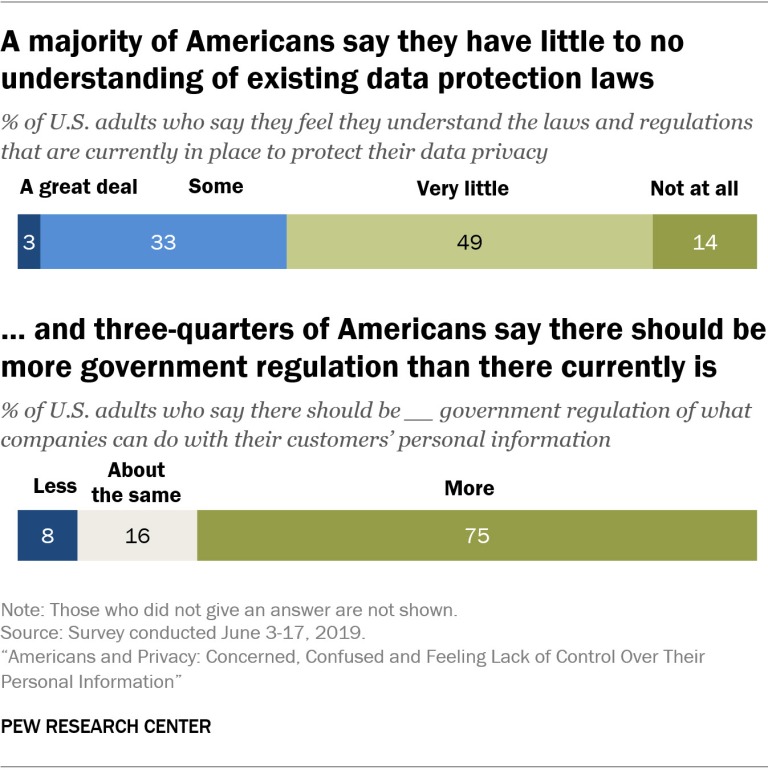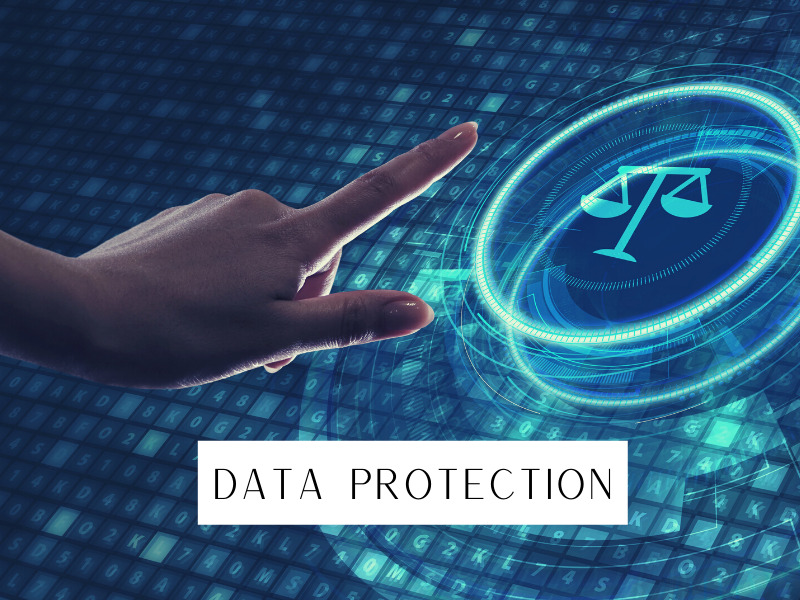Data protection laws aren’t enough to keep you safe, because they aren’t updated fast enough to keep up with evolving technology that is rapidly increasing the amount of data being collected.
Defining “safe”
By safe, we mean in full control of your privacy. To have full control over your privacy, you have to know exactly how your data is being used.
Food for thought: Do you know who is buying your data, and how they are using it? When downloading and using a free app, have you ever wondered why and how using that app could be free to you? All free applications take some monetary investment, time, and planning to launch. If it’s free, you should assume that it’s because the company that created it is profiting off of your data. Knowing that the more convenient it is to you, the more likely you’ll barely glance over the permission you’re giving to gather personal information.
Most applications and software hyperlink a Terms & Conditions page that you see when creating an account, and occasionally when data protection laws change, ask you to update your consent to terms and conditions.

But we think that asking someone to accept terms and conditions with a checkbox next to it is not in the best interest of the public. Because oftentimes the only reason they are collecting the data is for the purpose of profiting, not for the purpose of protecting the person they are collecting it from. Even if the data that is being collected is clearly written out, that doesn’t mean it’s easy for the general public to understand how exactly that collected information could be used.
Although it’s clear that people generally think that they don’t have a clear understanding of data protection laws and that there should be more care taken with their information.

Let’s talk about why data protection laws just aren’t enough to protect you.
Theres far too much grey area
Data protection laws normally cover main points of contention with data collection like discrimination relating to job acquisition, housing opportunities, and offers that would limit financing based on credit information. But these topics only cover a small portion of the industries that benefit from the vast amount of data collected, and how advertisements (and therefore opportunities) are targeted to you.
On average consumers get between 6,000 to 10,000 ads shown to them in a single day. That’s too many opportunities for mismanagement of your personal information.
Technology is advancing too rapidly for laws to keep us safe
Unknowingly we sign away the right to our data just to “keep up with the Jones’” technologically. According to Statista’s 2020 study, the average American has more than 10 connected devices, all collecting data, building a bigger, more robust profile on your behaviors.
This is data that legal experts are saying is becoming more common use in the court of law. Not only used and taken into consideration for cases but collected by the force of law. Unaware of how this information could be used against you, how would you know if there is a case built against you before stepping into the courtroom?
But no matter the amount of devices you have, whether you wear a Bluetooth watch, pretty much everyone always carries their phone on them. And let’s be honest, most of us keep it on hand even in the bathroom. We’re doubtful that anyone is comfortable with the surveillance rights that some companies have to capture such personal moments.
Data protection laws aren’t proactive
Data protection laws are usually put in place as a counter to breaches. This is when personal information leaks out to a party that didn’t get consent for that information, often leading to identity fraudulence. Rather than laws mitigating potential loss by considering how to prevent data theft before businesses have the right to collect information, these laws are put into force for damage control.
We won’t bore you with the process of how long data protection laws take to go into effect, but we will use the Equifax breach as a prime example that data protection policies are always a little too late on the scene. After 140+ million American identities were compromised in May of September 2017, months went by for lawsuit investigations to take place, and while people were scrambling to ensure their safety the company launched a site claiming to help the situation. When really it was helping the company to mitigate the damage from rightful, justified lawsuits. When people were clicking the Terms and Conditions to use the free reporting tool, to be notified if their information had been leaked, they were really signing away their right to open a lawsuit against the company.
How to have peace of mind
In an ever changing digital landscape, it’s important to be proactive about how your data is being managed instead of relying on patchwork policies being enforced to protect revenue. Making education on data privacy paramount to taking back control of your data. If you want to take full control of your privacy when operating in the digital world, take the PRVCY Transformation Course so you can transform your understanding, and build privacy strength that puts you ahead of the game.
If you want to learn more about digital privacy and security, register directly for our free webinar.













